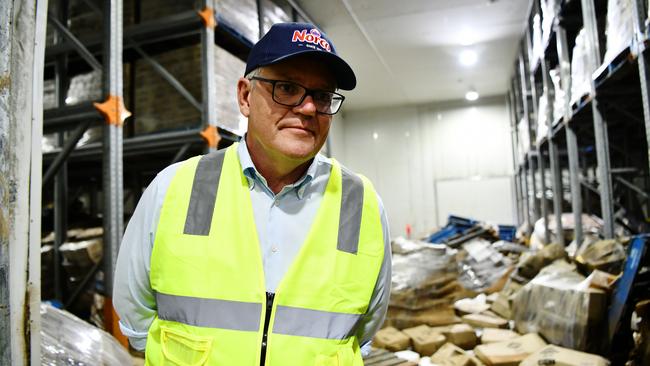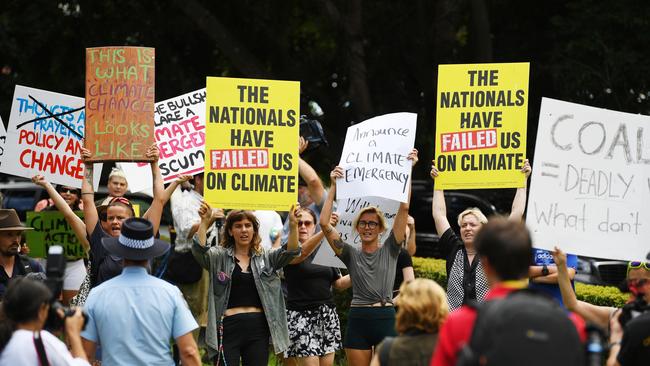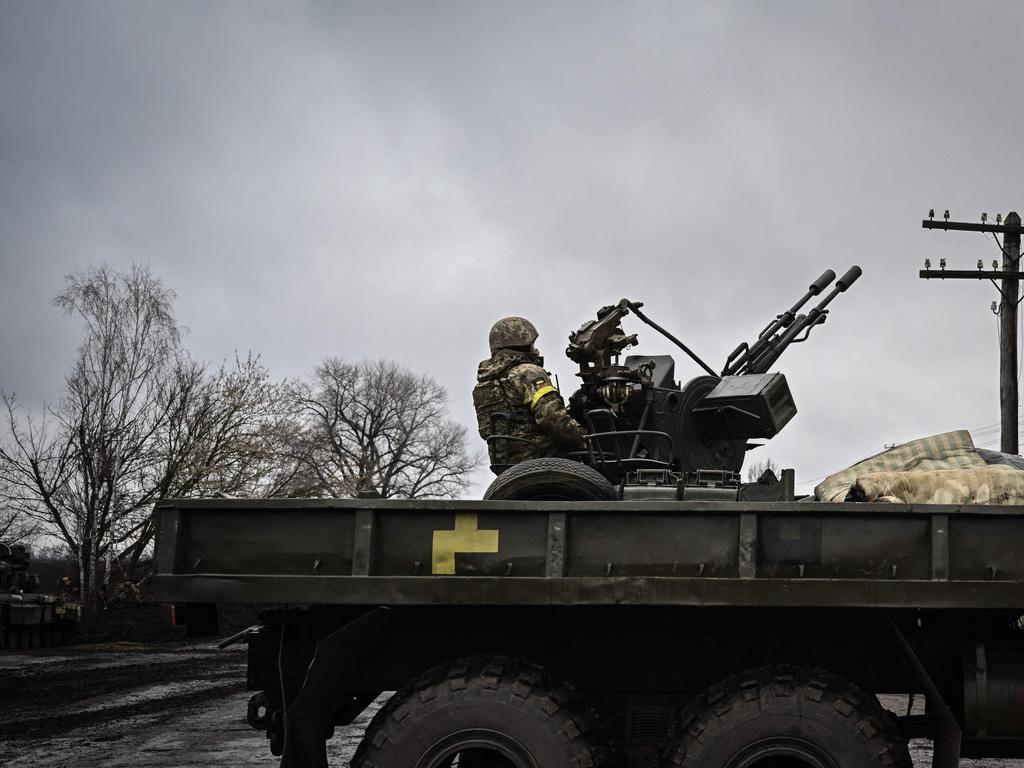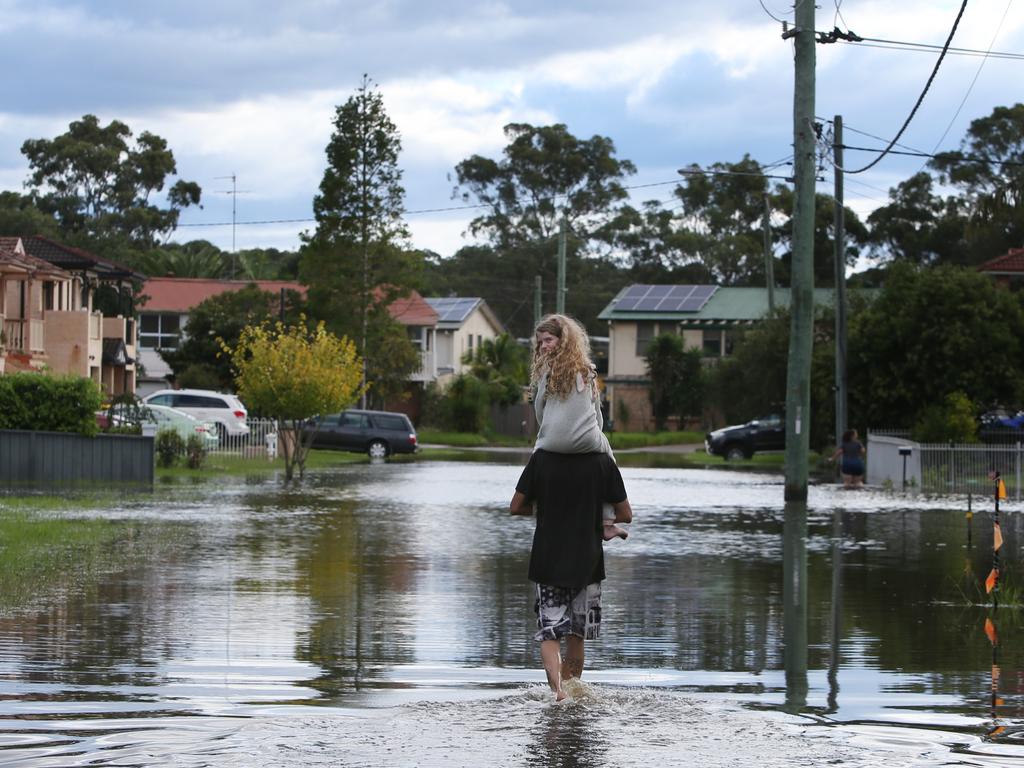
When times are tough, Google provides the answer. If the question is “Lismore flood”, the answer is “Scott Morrison and the press are bad”. On Friday, top hits included The Guardian, SBS, the ABC and Nine Newspapers. The Australian Financial Review ran with the line “PM ducks and weaves and he visits flood-stricken Lismore”. On the ABC, he was criticised for a “slow government response to flood emergency” – a theme repeated across media platforms. The Sydney Morning Herald worked the victim angle to depict the PM as heartless for not talking to a Lismore resident who wanted a new place to live.
The media is raking through the wreckage of natural disasters to turn weather events into a partisan political issue and maximise damage to the Coalition ahead of the election. For those who read beyond the headlines that suffice for many to form certain opinions on social media, the truth about natural disasters and their aftermath is more complex.
Among the most irate residents in media reports on the floods were those facing financial ruin because they had neglected to insure key assets. Yet, rather than reflect on what they could have done differently, they lashed out at government in general and the Prime Minister in particular.
The reluctance to acknowledge personal responsibility in a time of crisis is understandable but refusing to reckon with reality diminishes the chance for change. While evacuating during the Black Saturday bushfires in Victoria, one of the thoughts that brought some solace was that the house and contents were insured. At that time, making the mortgage and insurance payments was very difficult, but the peace of mind it provided was priceless. There are always exceptions and some properties in such high-risk areas that they cannot be insured, or are prohibitively expensive to insure, should be considered for government buybacks.
In Lismore, many people are doing it tough after successive floods. Median incomes are comparatively low. Census data shows 27.5 per cent of Lismore residents earn less than $650 gross weekly income compared to 19.7 per cent in NSW and 20 per cent in Australia. However, the rate of home ownership is higher. Of occupied dwellings in Lismore, 82.8 per cent are separate houses compared with 66.4 per cent in NSW and 72.9 across Australia. The need for affordable property insurance is clear, or hard decisions will need to be made about the sustainability of the area.
Low socio-economic status is correlated with vulnerability to natural disasters and the capacity to recover from them. Factors that increase the risk of harm include housing in exposed areas, lack of access to emergency savings funds and lower rates of insurance. However, there is relatively little research on factors that lead to greater vulnerability but could be changed through behaviour modification such as substance use and abuse, budgeting and financial planning.
Like ambulance-chasing lawyers, the green-left media has a bad habit of exploiting natural disasters. The floods in NSW and Queensland were politicised in the media’s campaign against the Coalition. As pundits clamoured to find the most traumatised victims, crowds gathered to condemn the PM. Many anti-Morrison media darlings are women and they are recruited to blame the Coalition for climate change when floods rise or fires rage. On the streets of flood-struck NSW, placard-waving folk gathered to shout at the PM as he visited inundated areas. Afterwards on social media, some excitedly shared stories about how they had hurled abuse at him – all in the name of compassion, of course. It is something of an irony that feminists who baulk at the idea of Prince Charming are the first to call on Scott Morrison when times get tough.

There is a powerful emotional appeal attached to claims of external culpability when disaster strikes. If the Prime Minister, the government, big business or the kings of coal are responsible for everything wrong in the world, it liberates us from the most fundamental demand of adulthood: self-responsibility. We never have to grow up. We are free to be the children of the state. But the price for eternal childhood is high and allowing the growth of dependency on big government without a sunset clause is never wise.
Imagine no government if you can. Imagine planning your life as though all you would ever have is what you had earned. Imagine no welfare, no pension, no safety net. How might our choices change? Would we buy a house in a remote area, live off the grid, build in a hot climate surrounded by trees, or settle near a river prone to flooding if there was no government funding when natural disasters struck?
For centuries, people have taken control of their own destinies and survived against the odds. We are the descendants of women and men who braved flood, famine, pestilence, wars and every hardship imaginable. The great civilisations were not built on government dependency, but independence of mind and body coupled with a robust survival instinct that bonded people together in kinship and friendship to create resilient communities.
In the ideal world, government would not be our first port of call in a time of crisis. Building stronger societies is a more sustainable path to recovery and creating the conditions for long-term resilience.







Natural disasters strike without prejudice and no one who has lived through them emerges unscathed. Having strong social networks, some savings tucked away and insurance cover for key assets helps to ease the pain of external shocks. Most Australians recognise the need to sacrifice some of their income for people who are genuinely in need. But if you buy a property in a flood-prone area and fail to insure it, expecting the taxpayer to bail you out is a bit rich.